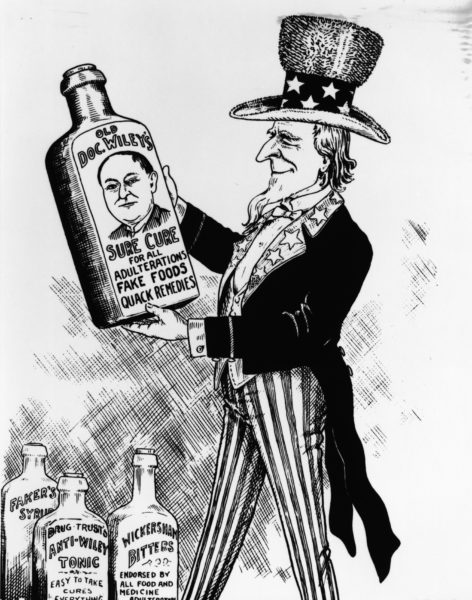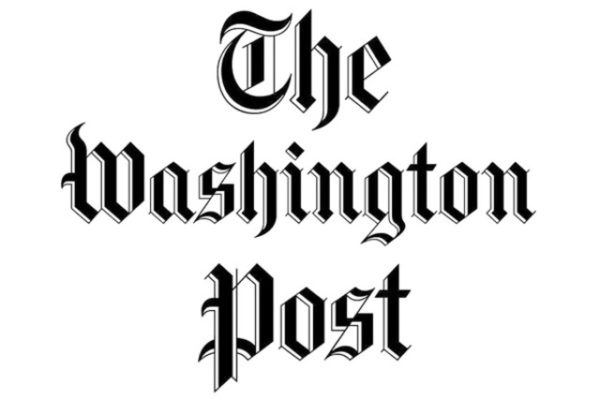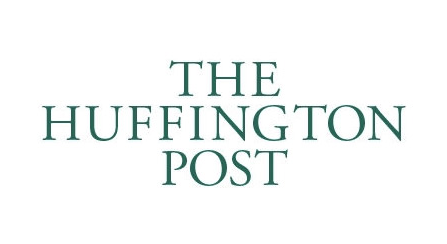Off-label Marketing
Snake-Oil Salesmen and the Food & Drug Administration
Years ago, people peddled all manner of “medicines” and “miracle remedies” to cure every ailment, and many a so-called snake oil salesman roamed the country preying on the hopes and fears of the sick and dying, usually doing more harm than good with dangerous, untested remedies. In 1906, President Theodore Roosevelt signed the Food & Drug Act, in part, to combat such practices and to ensure that Americans were only offered pharmaceuticals that were backed by sound science for a particular diagnosis. The Food & Drug Administration (FDA) now heavily regulates the promotion, marketing and sale of prescription drugs — and the American healthcare system is among the safest and most effective in the world.
What is Off-label Marketing and Why is it Fraudulent?
Modern “off-label marketing” is the practice of promoting the use of pharmaceuticals for unapproved symptoms, for unapproved patients, or in unapproved dosages. By promoting and selling pharmaceuticals in a manner not approved by the FDA, the Food and Drug Act is rendered meaningless. Without the certification of safety and effectiveness by the FDA, the pharmaceutical companies who, in pursuit of profit over safety, market pharmaceuticals for off-label uses are simply modern-day snake oil salesmen. This practice not only erodes the patient’s confidence in the entire medical system but leads to manipulative waste of government healthcare funds and can be extremely harmful to patients’ care.
The “off-label” use of pharmaceuticals is not billable to government health care programs because the government will not and should not spend taxpayers’ money on products that are not proven to be safe and effective for the prescribed use. If “off-label” promotion causes pharmaceuticals to be prescribed and government healthcare programs are then billed for unapproved prescriptions, the companies responsible for the promotion could be liable under the False Claims Act because their actions caused the government to be billed for something it did not agree to or approve.
Unlawful off-label marketing has been the focus of significant health care fraud enforcement under the qui tam provisions of the False Claims Act (FCA). In fact, some of the largest settlements in False Claims Act history, individually over $1 billion each, have involved off-label marketing claims.
Our Attorneys are National Qui Tam Experts and Trial Lawyers.
“The Accomplishments of Frohsin Barger & Walthall warrant the wealth of accolades that it has received.” — Benchmark Plaintiff”
Jim Barger and Elliott Walthall are among the only private attorneys general in the country ever to be tapped as part of a Department of Justice trial team in a Medicare fraud jury trial. A noted expert on the False Claims Act, Jim Barger teaches upper level courses on the subject as an adjunct professor at the University of Alabama School of Law, which was ranked among the top 15 law schools in the nation by Business Insider in 2016. Barger has appeared on HuffPost Live, Fox 6 Atlanta, and NPR and his opinions regularly are sought by major newspaper outlets on False Claims Act Medicare enforcement, including The New York Times and The Washington Post.
Both Jim Barger and Elliott Walthall have spoken on national panels about Medicare fraud for the American Bar Association, the American Association for Justice, and Taxpayers Against Fraud. In 2015, Barger was a featured symposium speaker on Medicare Fraud and the False Claims Act at the Georgetown Law Center in Washington, DC. and in 2016, Georgetown’s American Criminal Law Review published a new research article by Barger on the public-private partnership of the False Claims Act.
“Frohsin Barger & Walthall Wins $150 million Medicare Fraud Settlement”
Frohsin Barger & Walthall Represents Whistleblowers Nationwide.
Frohsin Barger & Walthall investigates and litigates qui tam actions on behalf of whistleblowers in federal and state actions across the country. Our representation includes evaluating, investigating, and filing qui tam actions as well as assisting prosecutors and investigative agents in pursuing cases and reaching settlements, with a high-percentage of our cases resulting in government intervention. We have sealed cases in multiple states across the country and regularly travel to meet with United States Attorney’s offices, State Attorney General Offices, and United States Department of Justice attorneys in Washington, DC.
The False Claims Act Offers Protection and Rewards for Whistleblowers.
Blowing the whistle on corporate fraud takes courage, and the law rewards that courage with certain protections. We understand that perhaps the most important aspect of representing corporate whistleblowers is guiding and protecting them through the difficult, stressful process of litigation. The False Claims Act provides for a whistleblower’s case to be filed under seal and for the identity of the whistleblower to be protected during the course of the government’s investigation. Further, federal laws protect against retaliation by mandating the reinstatement of wrongfully fired employees at the same seniority level, and an award of double back pay, interest, and attorneys’ fees. Finally, successful whistleblowers are entitled to substantial rewards, including up to 30% of any False Claims Act recovery which Congress has mandated is three times the amount of fraud that is proven through the whistleblower’s allegations plus substantial civil penalties.
Frohsin Barger & Walthall whistleblower cases have been featured in the following media outlets, among others:
Click on the media logo to read the featured story




